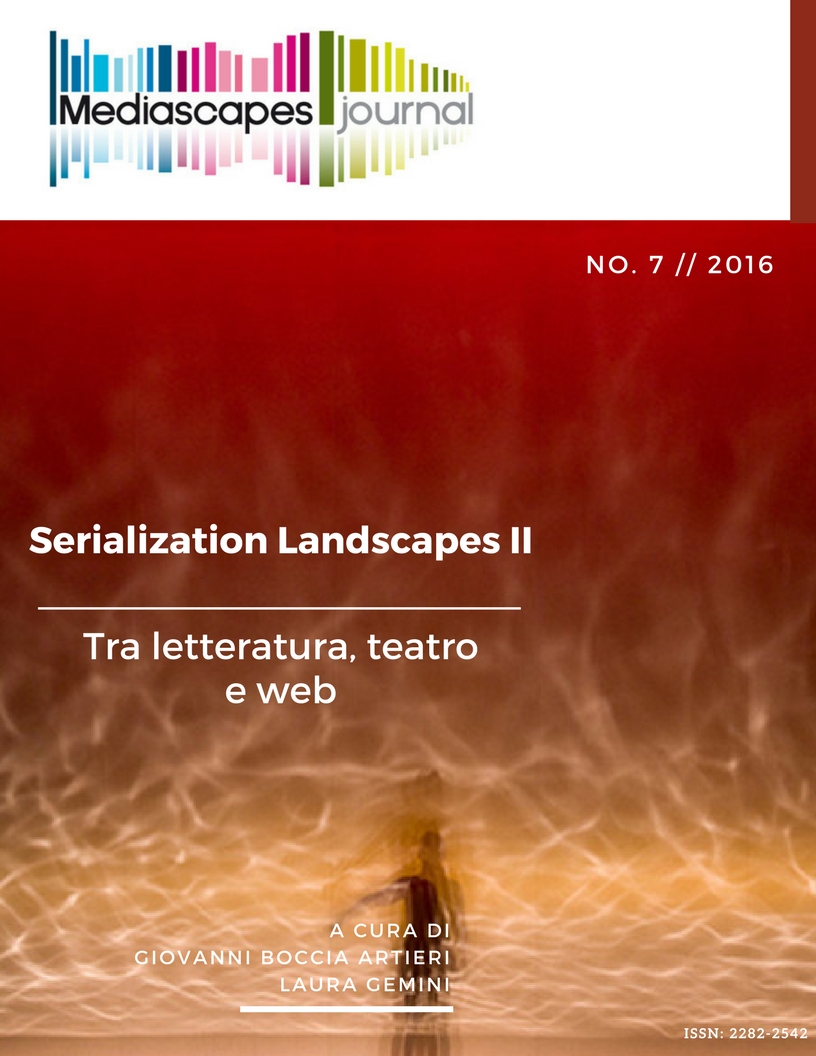Game Series: il linguaggio seriale nel mondo videoludico
Parole chiave:
Videogames, Games Studies, Videogames serialization, Game Series, Digital GamesAbstract
The field of videogames and game studies it’s a quiet recent matter in a research environment, and it’s based on the studying of a medium that’s multifaceted and in continuous evolution.
This paper wants to focus on the serialization processes in the videogames industry. At the beginning the concept of “serialization” in videogames referred only to the tie-inworks based on the TV series (Lost: Via Domus, C.S.I., 24) or movie sagas (The Godfather saga, Star Wars), or several sequels of the IP (Intellectual Property) software houses owned, as Super Mario, Assassin’s Creed and so on. Then, at a later time, the continual cross-media and trans-media operations (at first only pointed towards the storytelling) among movies, TV and videogames, generated borderline products. Specifically, it’s possible to find a multitude of video-ludic products released with the television formula of the “season” and “episodes”. This means that if in a first moment a videogame user had a complete story to play, with a beginning and an end, now he has to wait the release of new episodes of the game to continue his play. It’s the case of transmedia spin-off The Walking Dead, Season 1 and Season 2, The Wolf Among Us or the recent Life is Strange which, at present, has just one episode released of five announced. This new type of videogame narration, through the interactive using of the player, considers multiple endings that makes more interesting the development of this serial language.
##submission.downloads##
Come citare
Fascicolo
Sezione
Licenza
Gli autori che pubblicano su questa rivista accettano le seguenti condizioni:
- Gli autori mantengono i diritti sulla loro opera e cedono alla rivista il diritto di prima pubblicazione dell'opera, contemporaneamente licenziata sotto una Licenza Creative Commons - Attribuzione che permette ad altri di condividere l'opera indicando la paternità intellettuale e la prima pubblicazione su questa rivista.
- Gli autori possono aderire ad altri accordi di licenza non esclusiva per la distribuzione della versione dell'opera pubblicata (es. depositarla in un archivio istituzionale o pubblicarla in una monografia), a patto di indicare che la prima pubblicazione è avvenuta su questa rivista.
- Gli autori possono diffondere la loro opera online (es. in repository istituzionali o nel loro sito web) prima e durante il processo di submission, poiché può portare a scambi produttivi e aumentare le citazioni dell'opera pubblicata (Vedi The Effect of Open Access).


